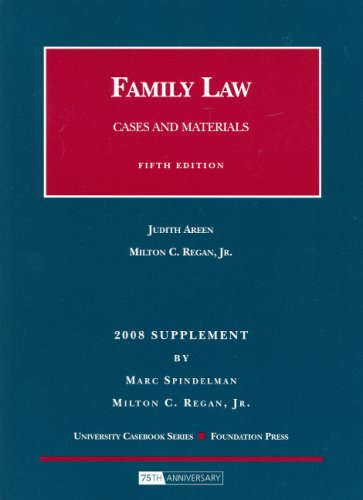(Fill in each step after checking the law of your state, particularly your state statutory code. You...
Question:
(Fill in each step after checking the law of your state, particularly your state statutory code. You may also need to refer to court rules and judicial opinions.
See General Instructions for the Flowchart Assignment in Appendix A. For each step, cite the statute, court rule, or other law that you are relying upon as authority for your answer.)
Step 1 Name the court or courts that have subject matter jurisdiction over divorces.
Citation:
Step 2 How is venue determined in a divorce action?
Citation:
Step 3 What must a complaint for divorce contain?
Citation:
Step 4 Must the complaint be subscribed and/or verified? If so, by whom?
Citation:
Step 5 Where is the complaint served and filed?
Citation:
Step 6 What is the filing fee for a divorce?
Citation:
Step 7 Who may serve process?
Citation:
Step 8 How is personal service made on an individual?
Citation:
Step 9 In divorce actions, how is substituted service made?
Citation:
Step 10 How is proof of service made?
Citation:
Step 11 How many days does the defendant have to answer the complaint?
Citation:
Step 12 Must the defendant’s answer be subscribed and/or verified? If so, by whom?
Citation:
Step 13 Must the defendant specifically plead all available affirmative defenses in the answer?
Citation:
Step 14 Where and how is the answer served and filed?
Citation:
Step 15 How many days does the plaintiff have to reply to any counterclaims of the defendant?
Citation:
Step 16 Where and how is the reply of the plaintiff served and filed?
Citation:
Step 17 When can a guardian ad litem be appointed in a divorce action?
Citation:
Step 18 Is there a waiting period? If so, how long is it and when does it begin to run?
Citation:
Step 19 Who can be deposed? When must a deposition be requested? How is the request made?
Citation:
Step 20 Are there any restrictions on the use of depositions in divorce actions?
Citation:
Step 21 When and on whom can interrogatories be filed?
Citation:
Step 22 When must interrogatories be answered?
Citation:
Step 23 When can a request for admissions be made?
Citation:
Step 24 When will a court order a physical or mental examination?
Citation:
Step 25 Summarize the sanctions that can be imposed if a party improperly refuses to comply with valid discovery requests.
Citation:
Step 26 In a divorce action, summarize the preliminary orders that can be granted by the court pendente lite.
Citation:
Step 27 In a divorce action, what evidence, if any, must be corroborated?
Citation:
Step 28 Are there any limitations on testimony that one spouse can give against the other?
Citation:
Step 29 Can there be a jury trial in a divorce case? If so, when must the request for one be made?
Citation:
Step 30 What happens if the defendant fails to appear? Can there be a default judgment?
Citation:
Step 31 Is there an interlocutory decree or decree nisi? If so, how long is it effective, and how does the divorce become final?
Citation:
Step 32 To what court can the divorce decree be appealed?
Citation:
Step 33 How many days does a party have to appeal?
Citation:
Step 34 Where and how is the notice of appeal served and filed?
Citation:
Step 35 Summarize the procedures that must be followed to seek enforcement of a divorce order by contempt.
Citation:
Step 36 Summarize the procedures that must be followed to set aside a divorce judgment on the ground of fraud.
Citation:
Step by Step Answer:

Null Family Law Cases And Materials
ISBN: 9781599415741
5th Edition
Authors: Judith Areen , Milton C Regan





